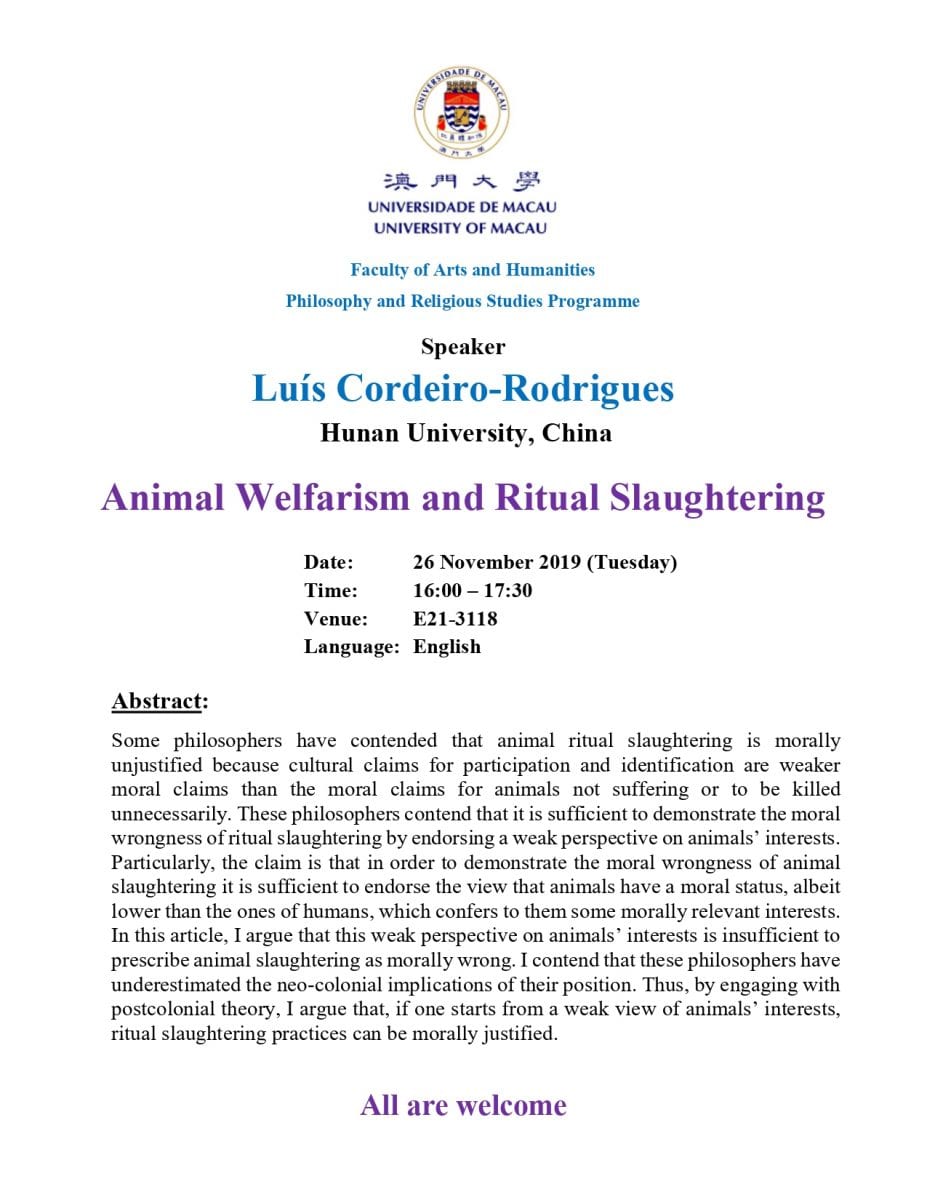

FAH/PHIL Guest Lecture – “Animal Welfarism and Ritual Slaughtering” by Prof. Luís Cordeiro-Rodrigues, Hunan University, China
2019-11-26 @ 4:00 pm ~ 5:30 pm
Abstract:
Some philosophers have contended that animal ritual slaughtering is morally unjustified because cultural claims for participation and identification are weaker moral claims than the moral claims for animals not suffering or to be killed unnecessarily. These philosophers contend that it is sufficient to demonstrate the moral wrongness of ritual slaughtering by endorsing a weak perspective on animals’ interests. Particularly, the claim is that in order to demonstrate the moral wrongness of animal slaughtering it is sufficient to endorse the view that animals have a moral status, albeit lower than the ones of humans, which confers to them some morally relevant interests. In this article, I argue that this weak perspective on animals’ interests is insufficient to prescribe animal slaughtering as morally wrong. I contend that these philosophers have underestimated the neo-colonial implications of their position. Thus, by engaging with postcolonial theory, I argue that, if one starts from a weak view of animals’ interests, ritual slaughtering practices can be morally justified.

